-
 Bitcoin
Bitcoin $117500
2.15% -
 Ethereum
Ethereum $3911
6.19% -
 XRP
XRP $3.316
10.79% -
 Tether USDt
Tether USDt $1.000
0.01% -
 BNB
BNB $787.2
2.24% -
 Solana
Solana $175.2
4.15% -
 USDC
USDC $0.9999
0.00% -
 Dogecoin
Dogecoin $0.2225
8.40% -
 TRON
TRON $0.3383
0.28% -
 Cardano
Cardano $0.7868
6.02% -
 Stellar
Stellar $0.4382
9.34% -
 Hyperliquid
Hyperliquid $40.92
7.56% -
 Sui
Sui $3.764
7.63% -
 Chainlink
Chainlink $18.48
10.66% -
 Bitcoin Cash
Bitcoin Cash $582.1
1.88% -
 Hedera
Hedera $0.2601
6.30% -
 Avalanche
Avalanche $23.33
4.94% -
 Ethena USDe
Ethena USDe $1.001
0.02% -
 Litecoin
Litecoin $122.3
2.04% -
 UNUS SED LEO
UNUS SED LEO $8.969
-0.27% -
 Toncoin
Toncoin $3.339
0.86% -
 Shiba Inu
Shiba Inu $0.00001287
4.30% -
 Uniswap
Uniswap $10.43
7.38% -
 Polkadot
Polkadot $3.861
5.08% -
 Dai
Dai $1.000
0.02% -
 Bitget Token
Bitget Token $4.513
3.41% -
 Monero
Monero $267.7
-6.18% -
 Cronos
Cronos $0.1499
4.14% -
 Pepe
Pepe $0.00001110
5.15% -
 Aave
Aave $284.9
8.28%
What is the credit card recharge fee for BitFlyer?
BitFlyer charges a 5% fee for credit card recharges, which can vary by region and issuer; always review the fee before confirming your transaction.
Apr 19, 2025 at 03:01 pm

When it comes to recharging your BitFlyer account using a credit card, understanding the associated fees is crucial for managing your cryptocurrency transactions effectively. BitFlyer, a prominent cryptocurrency exchange, allows users to fund their accounts using various payment methods, including credit cards. However, the convenience of using a credit card comes with a fee, which we will explore in detail in this article.
Understanding BitFlyer's Credit Card Recharge Fee
BitFlyer charges a fee for credit card transactions to cover the costs associated with processing these payments. The credit card recharge fee on BitFlyer is typically around 5% of the transaction amount. This percentage can vary slightly depending on the region and the specific credit card issuer, but 5% is the standard rate you can expect.
Factors Affecting the Credit Card Recharge Fee
Several factors can influence the exact fee you might encounter when recharging your BitFlyer account with a credit card. These include:
- Region: Different countries might have different fee structures due to varying processing costs.
- Credit Card Issuer: Some credit card companies may have agreements with BitFlyer that affect the fee.
- Transaction Amount: Larger transactions might incur slightly different fees compared to smaller ones.
It is essential to check the specific fee before completing your transaction, as it can impact the overall cost of your cryptocurrency purchase.
How to Recharge Your BitFlyer Account with a Credit Card
Recharging your BitFlyer account with a credit card is a straightforward process. Here are the detailed steps you need to follow:
- Log into Your BitFlyer Account: Access your BitFlyer account using your credentials.
- Navigate to the Deposit Section: Once logged in, go to the "Deposit" or "Funds" section of the website.
- Select Credit Card as the Payment Method: Choose "Credit Card" from the list of available payment options.
- Enter the Amount: Input the amount you wish to deposit into your account.
- Review the Fee: Before proceeding, you will see the fee associated with the transaction. Ensure you are comfortable with the fee before moving forward.
- Enter Credit Card Details: Provide your credit card information, including the card number, expiration date, and CVV code.
- Confirm the Transaction: Review all the details and confirm the transaction. You may need to complete a two-factor authentication step for security.
- Wait for Confirmation: Once the transaction is processed, you will receive a confirmation, and the funds should appear in your BitFlyer account shortly.
Comparing Credit Card Recharge Fees with Other Payment Methods
It's beneficial to compare the credit card recharge fee with other payment methods available on BitFlyer to make an informed decision. Here's a brief comparison:
- Bank Transfer: Typically incurs lower fees, often around 0.5% to 1%, but can take longer to process.
- Debit Card: Similar to credit cards, debit card transactions might also have a fee around 5%.
- Cryptocurrency Transfer: Usually free or very low cost, but requires you to already own cryptocurrency.
Understanding these differences can help you choose the most cost-effective method for your needs.
Tips for Minimizing Credit Card Recharge Fees on BitFlyer
While the credit card recharge fee is a fixed percentage, there are strategies you can use to minimize its impact:
- Use Larger Transactions: Since the fee is a percentage, larger transactions can spread the fee over a bigger amount, effectively reducing its impact per unit of currency.
- Check for Promotions: BitFlyer occasionally offers promotions or reduced fees for certain payment methods. Keep an eye out for these opportunities.
- Consider Alternative Payment Methods: If the credit card fee is too high, consider using a bank transfer or cryptocurrency transfer, which might be more cost-effective.
Frequently Asked Questions
Q: Can I use any credit card to recharge my BitFlyer account?
A: Most major credit cards are accepted by BitFlyer, including Visa, MasterCard, and American Express. However, it's always a good idea to check with BitFlyer's support to confirm if your specific card is supported.
Q: How long does it take for the funds to appear in my BitFlyer account after a credit card recharge?
A: Typically, funds from a credit card recharge are available in your BitFlyer account almost instantly. However, in some cases, it might take a few minutes to an hour for the transaction to be fully processed.
Q: Are there any limits on how much I can recharge using a credit card on BitFlyer?
A: Yes, BitFlyer has limits on credit card recharges, which can vary based on your account verification level and the policies of your credit card issuer. It's best to check the specific limits on the BitFlyer website or contact their support for the most accurate information.
Q: Can I get a refund if I accidentally recharge my BitFlyer account with a credit card?
A: Refunds for credit card recharges are subject to BitFlyer's policies and the terms of your credit card issuer. You should contact BitFlyer's customer support immediately if you need a refund, as they can guide you through the process.
Disclaimer:info@kdj.com
The information provided is not trading advice. kdj.com does not assume any responsibility for any investments made based on the information provided in this article. Cryptocurrencies are highly volatile and it is highly recommended that you invest with caution after thorough research!
If you believe that the content used on this website infringes your copyright, please contact us immediately (info@kdj.com) and we will delete it promptly.
- Tron's Sell-Off Spurs Altcoin Shift: What's Next for TRX?
- 2025-08-08 08:30:12
- RUVI Presale: Is the Growth Potential Real?
- 2025-08-08 09:10:12
- Sleep Token's US Takeover: Thornhill Rides the 'Even In Arcadia' Wave
- 2025-08-08 08:30:12
- FTT Token's Wild Ride: Creditor Repayments vs. Market Drop - A New Yorker's Take
- 2025-08-08 07:10:12
- Floki Crypto Price Prediction: Riding the Robinhood Rocket or Just a Meme?
- 2025-08-08 07:15:12
- EigenLayer, Restaking, and Ethereum: Navigating the Hype and the Hazards
- 2025-08-08 06:30:12
Related knowledge
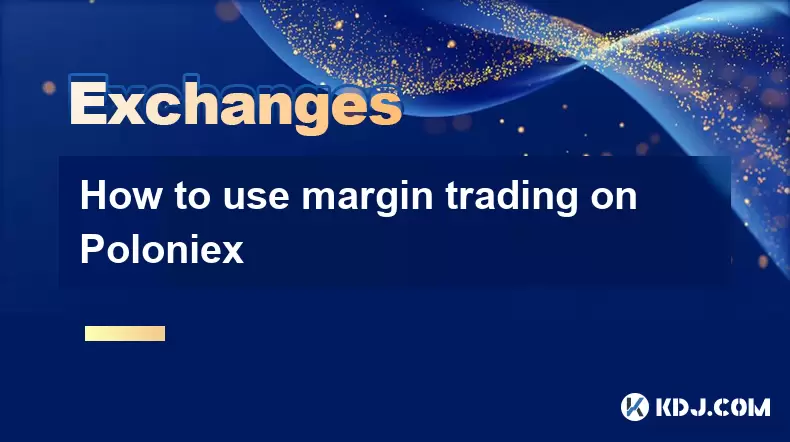
How to use margin trading on Poloniex
Aug 08,2025 at 09:50am
Understanding Margin Trading on Poloniex
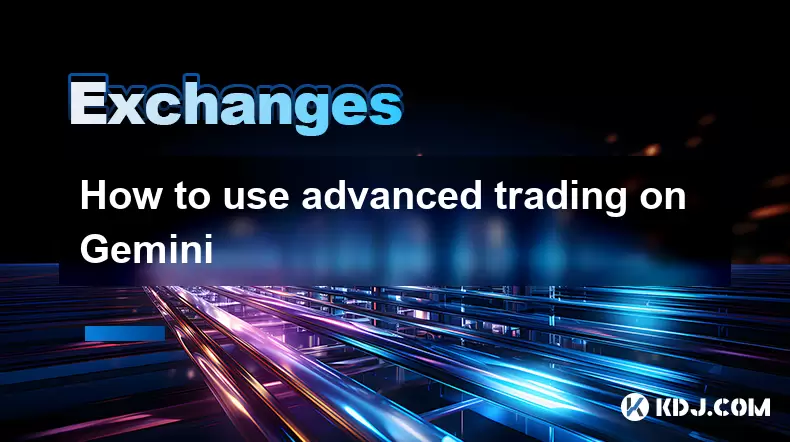
How to use advanced trading on Gemini
Aug 08,2025 at 04:07am
Understanding Advanced Trading on GeminiAdvanced trading on Gemini refers to a suite of tools and order types designed for experienced traders who wan...
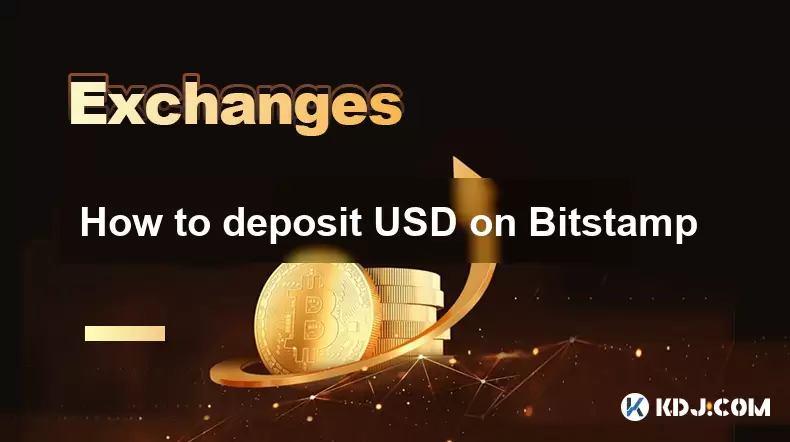
How to deposit USD on Bitstamp
Aug 07,2025 at 05:18pm
Understanding Bitstamp and USD DepositsBitstamp is one of the longest-standing cryptocurrency exchanges in the industry, offering users the ability to...
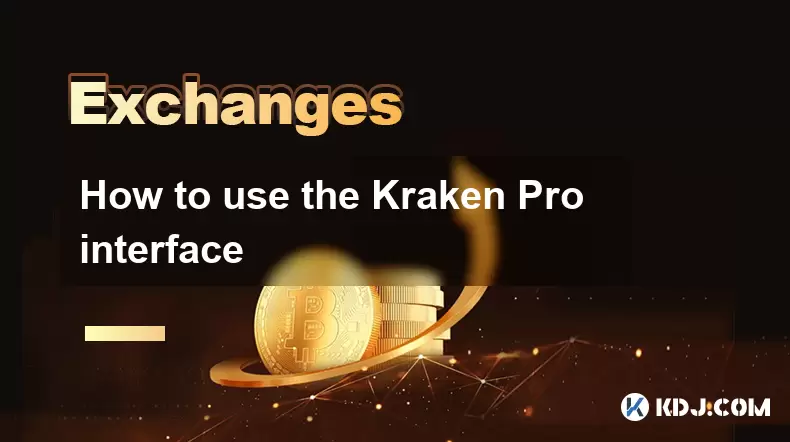
How to use the Kraken Pro interface
Aug 08,2025 at 09:57am
Understanding the Kraken Pro Interface LayoutThe Kraken Pro interface is designed for both novice and experienced traders seeking a streamlined experi...
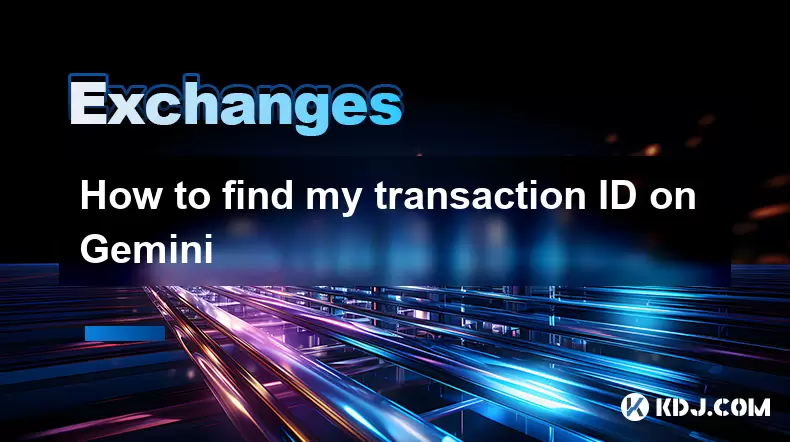
How to find my transaction ID on Gemini
Aug 08,2025 at 12:50am
Understanding the Transaction ID in Cryptocurrency ExchangesA transaction ID (TXID) is a unique alphanumeric string that identifies a specific transfe...
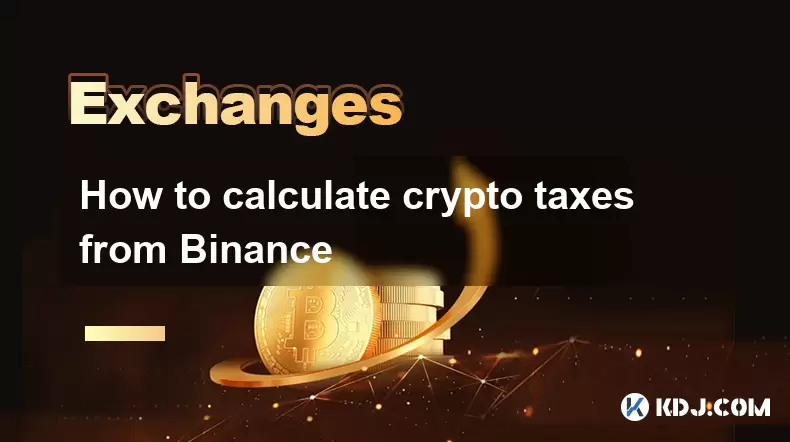
How to calculate crypto taxes from Binance
Aug 08,2025 at 07:56am
Understanding Cryptocurrency Taxation on BinanceCalculating crypto taxes from Binance requires a clear understanding of how tax authorities classify d...

How to use margin trading on Poloniex
Aug 08,2025 at 09:50am
Understanding Margin Trading on Poloniex

How to use advanced trading on Gemini
Aug 08,2025 at 04:07am
Understanding Advanced Trading on GeminiAdvanced trading on Gemini refers to a suite of tools and order types designed for experienced traders who wan...

How to deposit USD on Bitstamp
Aug 07,2025 at 05:18pm
Understanding Bitstamp and USD DepositsBitstamp is one of the longest-standing cryptocurrency exchanges in the industry, offering users the ability to...

How to use the Kraken Pro interface
Aug 08,2025 at 09:57am
Understanding the Kraken Pro Interface LayoutThe Kraken Pro interface is designed for both novice and experienced traders seeking a streamlined experi...

How to find my transaction ID on Gemini
Aug 08,2025 at 12:50am
Understanding the Transaction ID in Cryptocurrency ExchangesA transaction ID (TXID) is a unique alphanumeric string that identifies a specific transfe...

How to calculate crypto taxes from Binance
Aug 08,2025 at 07:56am
Understanding Cryptocurrency Taxation on BinanceCalculating crypto taxes from Binance requires a clear understanding of how tax authorities classify d...
See all articles

























































































